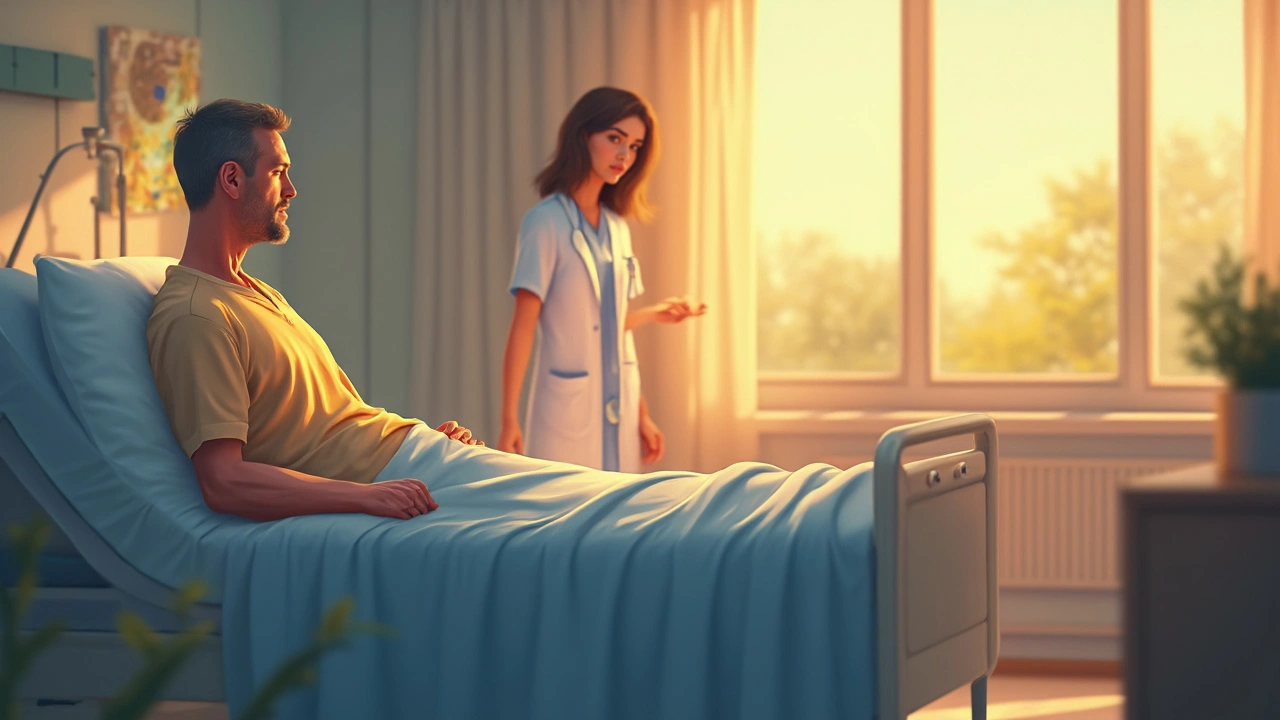Difficulty Urinating: What’s Going On and How to Fix It
If you’ve ever tried to pee and felt like the stream wouldn’t start, or it stopped suddenly, you’re not alone. Trouble urinating can happen to anyone, but the reasons behind it matter. Understanding the why helps you decide if a simple change at home will work or if a doctor’s visit is needed.
Common Reasons for Trouble Urinating
Most bladder hiccups are caused by something that blocks the flow or tells the muscles to stay tight. In men, an enlarged prostate is a top culprit – the gland swells and squeezes the urethra, making the stream weak or intermittent. Women often deal with urinary tract infections (UTIs) that irritate the bladder and make it hard to start peeing.
Medications can also play a sneaky role. Some antidepressants, antihistamines, and even over‑the‑counter pain relievers can tighten the muscles around the bladder. Dehydration, high caffeine intake, and alcohol can irritate the lining, leading to urgency or incomplete emptying.
Less common but serious causes include nerve problems from diabetes or spinal injuries, and stones that jam the urethra. If you notice blood in the urine, severe pain, or you can’t pee at all, treat it as an emergency – you could be dealing with a blockage that needs prompt care.
What to Do Next
First, try simple home tricks. Stay hydrated (aim for 6‑8 glasses a day), cut back on caffeine and alcohol, and schedule regular bathroom breaks so your bladder isn’t constantly on edge. Gentle pelvic floor exercises can improve muscle control – think of squeezing the muscles you’d use to stop a stream, holding for a few seconds, then releasing.
If you suspect a medication is the cause, talk to your pharmacist or doctor about alternatives or dosage adjustments. For UTIs, a short course of antibiotics usually clears things up within a couple of days.
When symptoms persist for more than a week, or you experience pain, fever, or a weak stream that doesn’t improve, book an appointment. Your doctor may order a urine test, ultrasound, or a post‑void residual scan to see how much urine is left in the bladder after you pee. These tests help pinpoint whether it’s a prostate issue, nerve problem, or something else.
Treatment options vary. For an enlarged prostate, medications like alpha‑blockers relax the bladder neck, while newer minimally invasive procedures can shrink the prostate without surgery. Nerve‑related bladder problems might respond to physical therapy or medications that relax the bladder muscle.
Remember, difficulty urinating isn’t something you should just live with. Small changes in lifestyle can make a big difference, but if the problem sticks around, medical help is the safest route. Browse the articles tagged “difficulty urinating” on The Health Hub for deeper dives into specific causes, medication side‑effects, and step‑by‑step guides on managing the issue.
Take action today – stay hydrated, watch your meds, and don’t ignore lingering symptoms. Your bladder will thank you.

Difficulty Urinating After Surgery: Understanding and Managing the Challenge
Experiencing difficulty urinating after surgery can be unsettling, but it's a common issue for many patients. Understanding the reasons behind this can help in managing the problem effectively. The article explores the physiological causes, offers practical tips to ease the experience, and discusses when to seek medical assistance. By highlighting both medical insights and practical coping strategies, it aims to provide reassurance and actionable advice.
